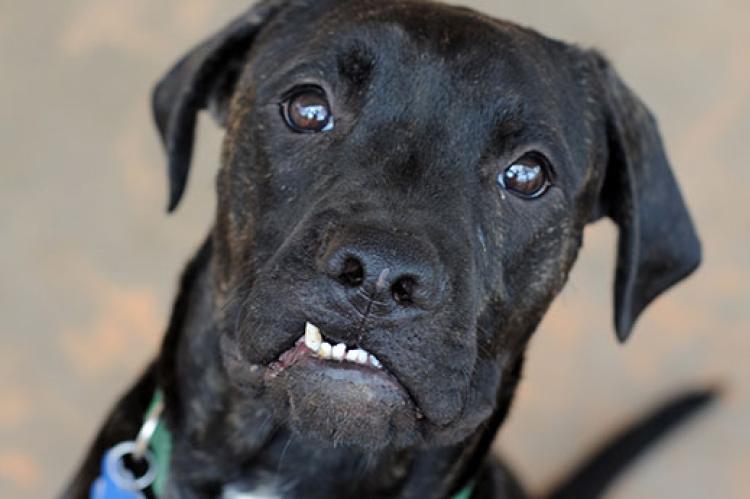Pet Dental Care

Do you avoid getting up close and personal with your pet’s breath? That bad breath is certainly unpleasant enough, but your pet could have a worse problem.
Dental care for your pets is very important. Oral hygiene is about more than ensuring your animals' teeth are clean. Tartar buildup on teeth and inflamed gums can actually undermine your pet’s good health.
Do animals develop dental disease?
Sure they do! Dental disease is actually seen more often in pets than it is in humans. Why? Because pets can’t brush or floss their teeth. So it’s no surprise that 80 percent of dogs and 70 percent of cats show signs of dental disease by the age of four. In fact, dental disease is probably one of the most common health problems in dogs and cats.
In humans, the cavity is the most common form of dental disease, but in dogs and cats, it’s tartar buildup. Tartar causes irritation of the gums, loosening of the teeth, exposure of the tooth roots, infection, tooth abscesses, and, eventually, tooth loss. An untreated infection within the mouth may be picked up by the bloodstream and carried to other parts of the body. The result can be more serious health risks, such as kidney, liver and heart disease. Also, sore, painful and loose teeth can make your pet very uncomfortable and unwilling or unable to eat properly.
Won’t feeding my pet dry food prevent dental problems?
Most people believe that feeding their pets dry food is enough to ward off dental problems. Not so. Diet is probably much less important to prevent tartar buildup than most people think. Dry food is less sticky, of course, and does not adhere to the teeth as readily as canned food. But, eating dry food does not remove tartar from the teeth. Certain chewing toys or strips (especially those that contain enzymes) designed to clean the teeth may help tartar buildup somewhat, but only a professional cleaning by your veterinarian can remove tartar once it forms.
What contributes to dental disease in pets?
One of the main factors is your pet’s individual mouth chemistry. Some pets need yearly cleanings; others need cleanings only once every few years. Breed also plays a role in your pet’s dental health. Small dogs, especially those with short faces (Pekingeses, pugs, etc.) are particularly prone to dental problems, as are Persian cats.
How can I tell if my pet has dental disease?
Well, bad breath is one obvious clue. But you may also see yellow-brown teeth covered with a barnacle-like hard substance and red irritated gums that bleed easily. You may even see loose teeth that are very tender to the touch. However, the best way to determine if your pet needs a dental cleaning is to have your veterinarian do a dental health checkup.
What does dental care for your pets and a dental cleaning involve?
If your vet determines that your pet needs a dental cleaning, here’s what happens. First, your pet must be completely anesthetized. It is not possible to thoroughly clean the teeth if your pet is awake. Your pet’s teeth will be cleaned, scaled with an ultrasonic scaler, and polished. A thorough evaluation of the teeth will determine if any of them need to be pulled. The vet will examine the entire oral cavity to look for abnormalities such as tumors or deep infections of the gums or jawbone.
After the cleaning, your pet may need to take oral antibiotics and eat a softer diet for a few days, particularly if there was a lot of infection or if many teeth had to be extracted. When your pet goes home, you will be advised on the proper dental care program for your pet.
So, to keep your pet smiling, schedule regular veterinary dental exams.